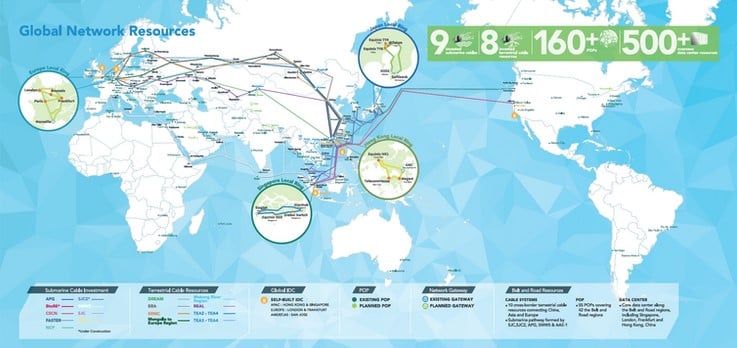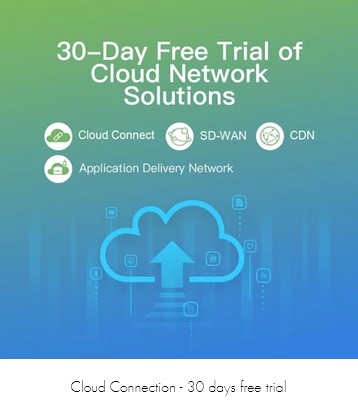Springboard to China on the Cloud: 4 points you should think

The UK and China share a history of bilateral trade and investment, strong business and financial links, and collaborations that span education, research, culture, and sport. Many UK companies are already succeeding in China, and many more are now preparing to make a move into the market.
Until fairly recently, the IT infrastructure deployment associated with such a move would involve significant time and capital expense. Challenges begin with determining the level of computer resources required and include installing local servers, budgeting for operations and maintenance, recruiting local personnel in the midst of a tech talent shortage, and finding the best ways to connect with headquarters and other overseas offices. Demand spikes, as around China’s famous Single’s Day shopping event, also need to be considered.
With the availability of cloud computing solutions, these challenges can be overcome and this makes setting up in China easier than ever for international companies. Opting to use cloud services from the start, you avoid having to set up your own local data centres while also gaining the ability to deploy computing resources flexibly and get up and running much faster.

Here are four questions you need to answer before selecting a cloud solution for your China business:
1. What services and solutions do we require?
You will find a number of familiar cloud service providers in China, including Amazon Web Services (AWS), Microsoft Azure, and Google Cloud, along with their sophisticated domestic counterparts: Alibaba Cloud, Huawei Cloud, Tencent Cloud, Baidu Cloud Engine, and UCloud.
2. How easy is it to manage these various services and solutions?
Like overseas multinationals, China’s global players tend to use a mix of cloud delivery models and strategies and rely on multiple vendors for private, public, and hybrid cloud solutions. This complexity increases the cost of IT management, requiring a skilled in-house team with the ability to manage multiple products and services in China and worldwide.
3. What SLAs and data security guarantees will we receive?
You must ensure that your cloud provider’s Service Level Agreement (SLA) can meet your business requirements. It is recommended that companies ask potential vendors about their security standards: your business is responsible for the safety of your data in an enterprise cloud, so you must review the protocols in place to prevent data loss and leakage. Your service provider also has an important compliance role and must understand and adhere to all relevant regulations in China and your other markets.
4. How can we make our China cloud more visible, accessible and manageable?
Designed to help multinationals deploy and manage innovative cloud solutions, an integrated cloud network platform can provide a seamless experience for connectivity services, cloud services, and other enterprise products. You can easily subscribe, manage and monitor all your cloud services online from a single platform.
Businesses ideally should use a platform that can provide secure connections to other cloud service providers to create an integrated cloud-network system that supports your business expansion in China. To respond to the market promptly, fast deployment is critical. Using an integrated single platform enables companies to run workloads across multiple cloud providers such as AWS, Alibaba Cloud, Google Cloud and Huawei Cloud. Businesses can then manage their multi-cloud platforms efficiently through one single integrated platform.
Through an integrated platform, provisioning can take seconds rather than days. Plus, you get any time access to the platform to research, purchase and deploy cloud services; track and monitor service status and usage; review logs and troubleshoot problems; manage the product life cycle, and customize your bills and notification services.
Expanding your international reach
mCloud developed by China Mobile International provides a single platform from which to manage all your cloud and network products around the world. The mCloud network currently spans major cities, including London, Beijing, Hong Kong, Singapore, Tokyo, and Los Angeles. It runs on China Mobile International’s extensive global network, with an unprecedented 99.99 per cent guaranteed uptime SLA.

China Mobile International has eight self-built submarine and eight terrestrial cable resources, four self-owned data centres, 170+ points of presence (PoPs), and 72 Cloud Connect PoPs globally. It also leverages the fibre infrastructure of its parent China Mobile, which boasts the world's largest mobile network and the world's largest mobile customer base. This allows it to provide comprehensive data services across more than 300 cities in 31 provinces and regions throughout Mainland China, plus 24x7 support.
mCloud is part of China Mobile International iSolutions, which delivers one-stop customized services across connectivity, cloud, ICT, data centres and IoT to enterprises serving a wide range of industry sectors. Together, these services enable enterprises to expand globally, seamlessly and securely.




